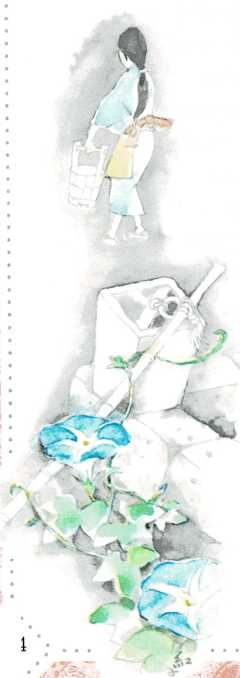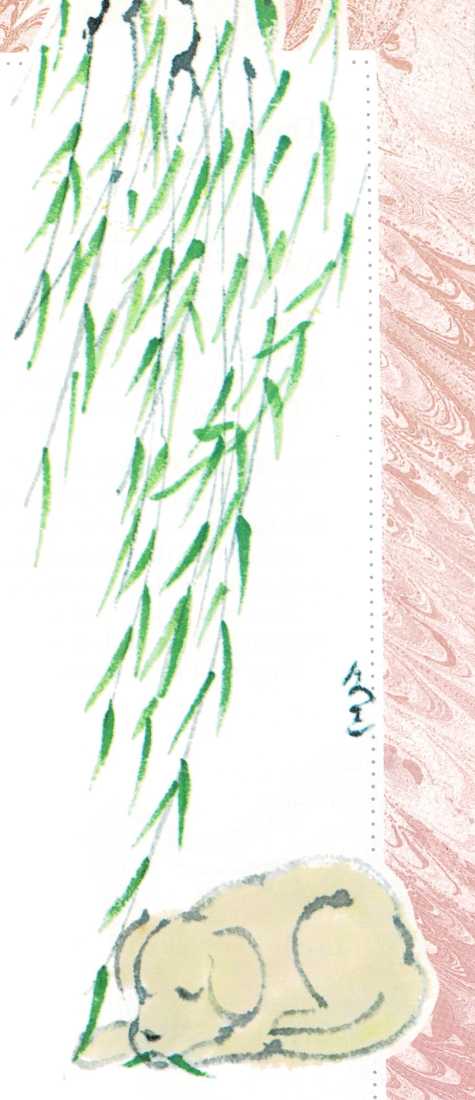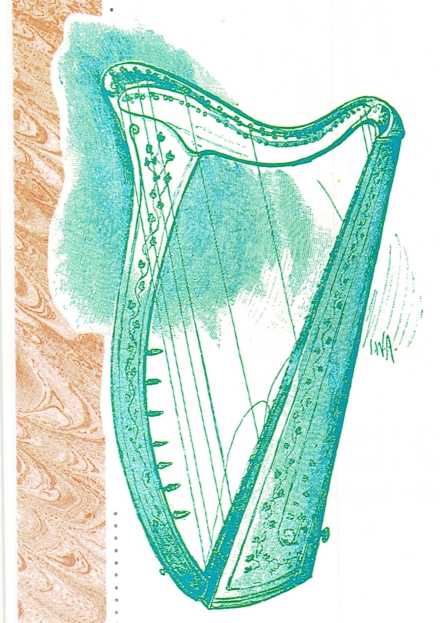Poems
Haiku
Haiku is a Japanese verse form consisting of seventeen syllables
arranged in three unrhymed lines of five, seven, and five syllables
each. However, this syllable scheme often varies in translation.
About three hundred years ago, the great Japanese poet Matsuo Bashb
raised haiku to a serious art form written according to strict rules.
Haiku had to describe subjects in nature and contain a reference to a
season of the year. After you have read these verses, try writing some
of your own haiku.
Far across hill and dale
The blossoms of the plum have cast A delicate pink veil.
Basho
A mountain village deep in snow … under the drifts a sound of water.
Shiki
When my canary
Flew away, that was the end Of spring in my house.
Shiki
The sunrise tints the dew; The yellow crocuses are out, And I must pick
a few.
Josa
I must go begging for water . .. morning glories have captured my well.
Chiyo

In spring the chirping
Frogs sing like birds … in summer They bark like old dogs.
Onitsura
The lost child cries, And as he cries, he clutches At the fireflies.
Ryusui
What a wonderful day! No one in the village doing anything.
Shiki
Get out of my road
And allow’ me to plant these Bamboos, Mr. Toad!
Chora
In spite of cold and chills That usher in the early spring We have the
daffodils.
Kikurid
How\’ cool cut hay smells when carried through the farm gate as the sun
comes up!
Boncho
I came to look, and lo, The plum tree petals scatter down A fall of
purest snow.
Reinko
Under the willow
With a leaf stuck in his mouth The puppy sleeps.
Issa

The Minstrel-Boy
by Thomas Moore
The Minstrel-boy to the war is gone, In the ranks of death you’ll find
him;
His father’s sword he has girded on, And his wild harp slung behind
him.— “Land of song!” said the warrior-bard, “Though all the world
betrays thee, One sword, at least, thy rights shall guard, One faithful
harp shall praise thee!”
The Minstrel fell! But the foeman’s chain Could not bring his proud soul
under;
The harp he loved ne’er spoke again, For he tore its cords asunder;
And said “No chains shall sully thee, Thou soul of love and bravery!
Thy songs were made for the brave and free, They shall never sound in
slavery!”
The Harp That Once Through Tara’s Halls
by Thomas Moore
The harp that once through Tara’s halls The soul of beauty shed,
Now hangs as mute on Tara’s walls, As if that soul were fled.—
So sleeps the pride of former days,
So glory’s thrill is o’er,
And hearts that once beat high for praise Now feel that pulse no more.
No more to chiefs and ladies bright The harp of Tara swells;
The chord alone, that breaks at night, Its tale of ruin tells.
Thus Freedom now so seldom wakes, The only throb she gives,
Is when some heart indignant breaks, To show that still she lives.


